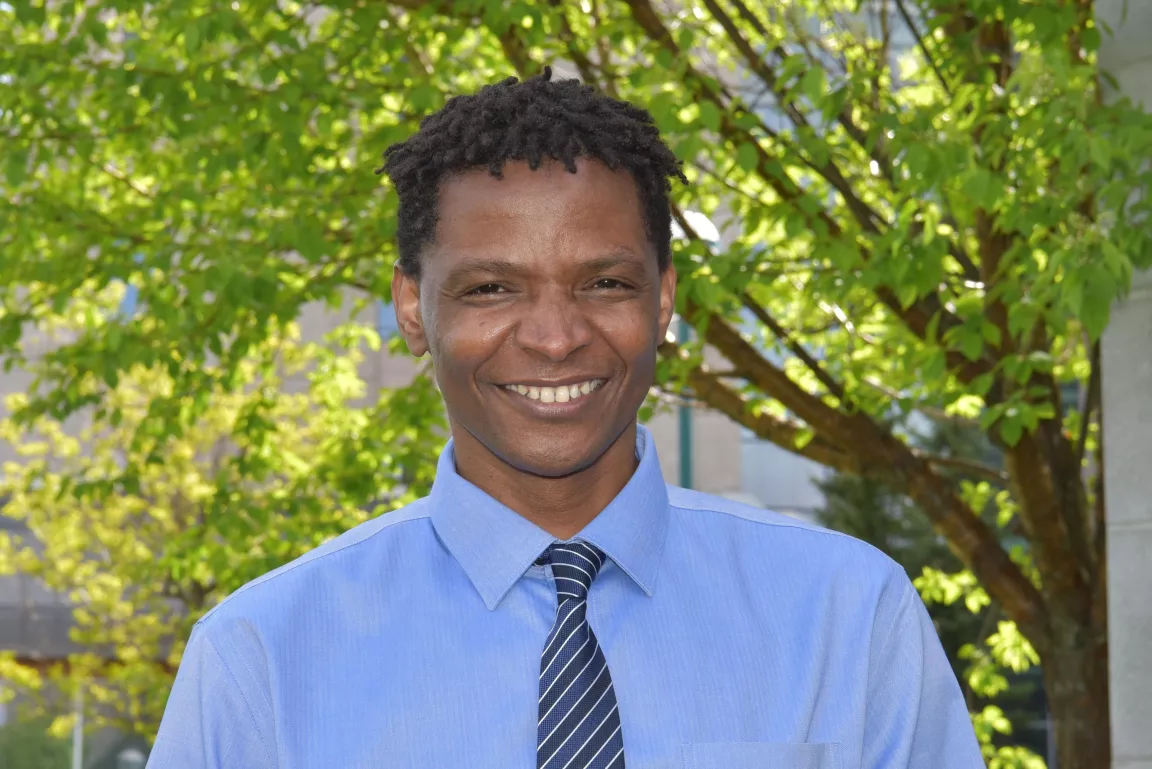Promoting healthier lifestyles for strong northern futures
Focused on finding ways to help people live their best possible active lives, Dr. Taru Manyanga with the UBC Master of Physical Therapy – North at UNBC is seeking to draw inspiration from the northern B.C. region and local Indigenous cultures.

In the almost year since Dr. Taru Manyanga joined the UBC Master of Physical Therapy - North (MPT-N) program at UNBC, he has been busy getting to know the region and the people in it. As MPT-N Research Faculty, Taru has been keen to learn about regional healthcare experiences and pursue studies on how physical therapists can not only aid people in healing from injury but also help them to proactively seek and maintain healthy lifestyles.
“The north is a very special and unique place to work and live,” says Taru. “I am humbled by the diversity of Nations in this region, the richness of their cultures, and the devotion with which they have cared for these lands for thousands of years.
“I grew up in rural Zimbabwe and I am drawn to and want to learn more about the practices and cultures here that may be similar to my own, that can be collectively harnessed to promote active and healthy living as the Indigenous populations here have done for generations. My goal is to establish a research program that is relevant to and informed by the contexts and cultures of the north.”
Nurtured by his experiences as a student in both the Bachelor of Medical Rehabilitation - Physical Therapy and Master of Community Health Science programs at the University of Manitoba, Taru found inspiration in the role that a health care provider can play in enhancing future quality of life for patients. He then moved to the University of Ottawa, where his doctoral thesis project examined lifestyle behaviors and health indicators between urban and rural children. With his strong interest in rural health, he looks forward to pursuing related projects focused on health promotion and injury prevention.
“In my research, I am interested in promoting healthy lifestyles, whatever they may be and however they may be practiced, to positively impact health,” notes Taru. ““When I was working in Winnipeg and treating patients from northern Manitoba early in my career, there were many who presented with lifestyle-related chronic conditions such as type 2 diabetes or cardiovascular diseases. In working with them, I could not help but think even further on what I could do to help prevent or minimize the impacts of these conditions.
“Growing up in a rural area of a low-income country, I was exposed to the negative impacts arising from a lack of healthcare resources and have always empathized with those in similar circumstances.”
Taru hopes to develop future collaborations with colleagues in the North that can even further explore his specific research interests.
“Mainly I am focused on the measurement and surveillance of lifestyle behaviors, such as sleep, physical activity, sedentary time, and diet, and looking at how they relate to health outcomes, particularly in younger populations. I would also like to explore ways to, for example, use physical activity among apparently healthy as well as clinical populations to promote health, prevent or manage chronic diseases.
Taru is keen to share his knowledge and research pursuits with students in the MPT-N program, through both his role as a teacher and as a research faculty member.
“I try to encourage our students to be interested in research and mentor them about the importance of evidence-based practice. The opportunity of combining clinical work with research and mentoring physical therapy students is something that I find very fulfilling.”